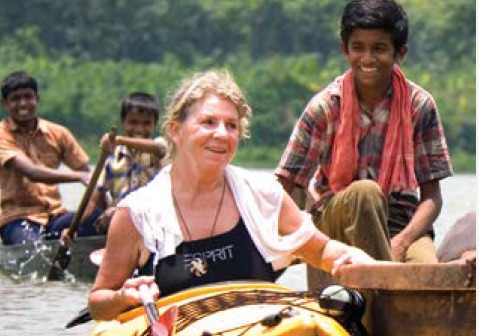The tourism sector in the State got a new lease of life with the announcement of a comprehensive Tourism policy. The decision to form Kerala Tourism Regulatory Authority aimed at improving the efficiency of the tourism sector and restrict the exploitation in the field has been included in the new policy and the implementation proceedings for the same is fast progressing. The main objectives of this authority is to address the prevailing issues like online frauds, drug abuse, child abuse, violation of environment rules and thereby preserve the image of the tourism industry in the State.
In order to implement innovative ideas and generate employment in the Tourism sector, the Kerala Tourism Investment Fund will be established. The primary aim of this is to attract young investors to this sector.
Through this scheme, the Government plans to provide professional advice for tourism related ventures and help investors identify ideal funding sources. The Government would take the initiative to form a Venture Fund for the same.
Plans in a nutshell
- Green Protocol to be implemented in all tourism centres to counter plastic menace.
- New Idea Meet and Investors Meet for young investors.
- Responsible Tourism Mission to be extended to all districts.
- Investment Guidance Cell to help NRIs who wish to invest in tourism sector.
- More tourism spots will be made friendly for differently-abled persons.
- River Cruise associated with the seven rivers of Kannur & Kasargod districts.
- Kalady-Malayattoor Pilgrim Tourism
- Varkala Sivagiri Tourism Circuit
- Muziris Heritage Conservation project second stage.
- Thalassery Heritage Conservation project.
- Alappuzha Heritage Conservation project.
Jatayu Earth Centre
The Jatayupara Tourism Project, being implemented with public private participation, is a matter of pride for the State. The Government provided all infrastructure support like roads and electricity for the project. The centre boasts of world’s largest bird sculpture and opens up immense scope for the tourism potential of the region.
Devaswom initiatives
A variety of projects were submitted to the Union Government for the development of Sree Padmanabhaswamy, Sabarimala and Guruvayur temples under the Swadesi Darsan and Prasad schemes and we could get the approvals for the same from the Centre. The State government has earmarked an amount of Rs 304 crores exclusively for the development of Sabarimala. Construction of transit restroom complexes with all modern facilities is being planned under this. Thirty seven temples have been selected for this project and the work has already begun in eleven temples.
Another landmark decision from the Government was regarding the appointment of Dalits as priests in temples under Travancore Devaswom Board. This historical step was widely appreciated by the general public and has pioneered a revolutionary change in the social fabric of the State.
Cooperative sector
The co-operative sector has moved on strongly overcoming the perils of demonetization and other concerted moves to jeopardize the sector. The initiatives for the Kerala Bank, a project to realise the dream of having a bank of our own, are fast progressing. A task force has been formed based on the recommendations of the committee headed by Prof. M.S. Sreeram of IIM, Bangalore. All other procedures are being initiated on a war footing to realize this as soon as we get the approval from Reserve Bank of India.
Social security pensions
This government implemented a unique project for delivering social security pensions at the houses of the beneficiaries through cooperative groups. The Haritham Sahakaranam programme as part of the Haritha Keralam Mission was successfully implemented. Five lakh saplings were planted across the State under this project.
The co-operative institutions played a key role in controlling price hike through their timely market interventions.
Consumerfed, which was reeling under huge loss, was put into a revival path by this government. The Federation which recorded a loss of Rs 418.11 crores during 2016, has registered an operating profit of Rs 51 crores in 2017.
The creative intervention of the cooperative sector in resolving the crisis of pension distribution in KSRTC was a matter of achievement. The consortium led by the State Cooperative Bank could effective involve in this to clear the long pending dues of pensioners.
In order to make cooperative banks debt free, a one time settlement programme , Navakaeraleeyam, was organized from February 15 to March 31.. The latest banking technologies like Core-banking Solution, Net Banking, ATM, RTGS, and NEFT etc will be implemented in State’s primary agricultural Co-operative Societies (PACS). The Co-operative institutions have taken initiatives to make their preence in the cultivation and enhancing the production of paddy, cashew and coconut.
The Co-operative Institutions have played a key role in the agricultural sector. The activities of the Karshaka Sevana Kendras, formed with the aim of increasing agriculture production, have been extended to more areas. In order to resolve the crisis in the cashew sector, cooperative institutions will take over the responsibility of the procurement of cashew.
Another landmark achievement was the framing of a comprehensive cooperative policy which was presented in the eighth cooperative Congress.















